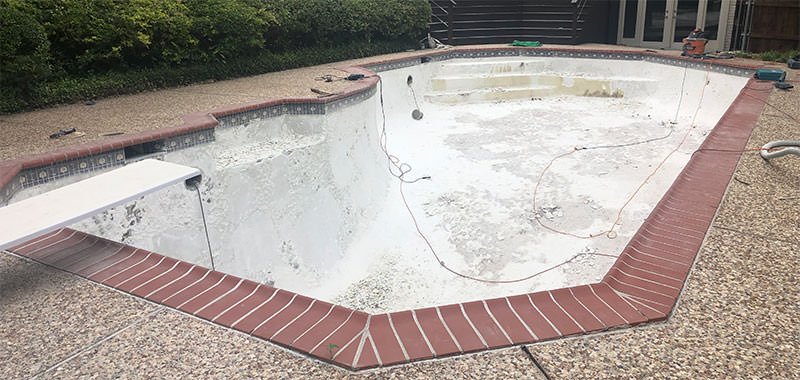Over time, pool plaster ages and wears away naturally due to water exposure, chemicals usage, sunlight exposure, pool usage and pool use. Over time it becomes more vulnerable to cracking, chipping and discoloration as its surface wears down further.
2. Water Chemistry Imbalance: Poor pool water chemistry can play an integral part in plaster deterioration. If not balanced properly, improper pH levels, alkalinity imbalance, or high calcium hardness levels can all have negative impacts that contribute to scaling, etching, staining, or staining on plaster surfaces that leads to their eventual breakdown and eventual deterioration.
3. Improper Pool Maintenance: Poor or inconsistent pool maintenance practices can contribute to plaster deterioration. A lack of regular cleaning, brushing, and maintenance routines allows debris such as algae to collect on its surface causing further deterioration over time.
4. Chemical Imbalance or Misuse: Improper or excessive chemical usage can damage pool plaster. Too much chlorine or harsh chemicals, or unbalanced chemical products used, may accelerate its degeneration more rapidly, so it is crucial that we follow manufacturer instructions and maintain optimal chemical balance to protect its surface.
5. Water Chemistry Changes: Sudden variations in water chemistry such as sudden increases or decreases in pH, alkalinity or calcium hardness can put undue strain on plaster surfaces and hasten their degradation. Rapid water level fluctuations or untreated water can have similar consequences.
6. Freeze-Thaw Cycles: Pools in areas experiencing freezing temperatures should be protected against repeated freeze-thaw cycles as repeated exposure to these extreme temperatures can damage their plaster. As water freezes and expands when frozen, cracking or spalling of plaster could occur; proper winterization measures and protection must be in place in order to limit their potential adverse impact.
7. Structural Issues: Any structural problems in a pool may put stress on its plaster surface and result in cracking, delamination or other forms of degradation that necessitate its replacement. Any concerns should be addressed quickly so as to minimize further damage to it and the plaster.
Note that lifespan and durability of pool plaster varies based on its quality, proper installation, maintenance practices and environmental influences. Regular monitoring, water chemistry balance maintenance practices and prompt repair of any issues will help extend its lifespan and minimize its deterioration.

